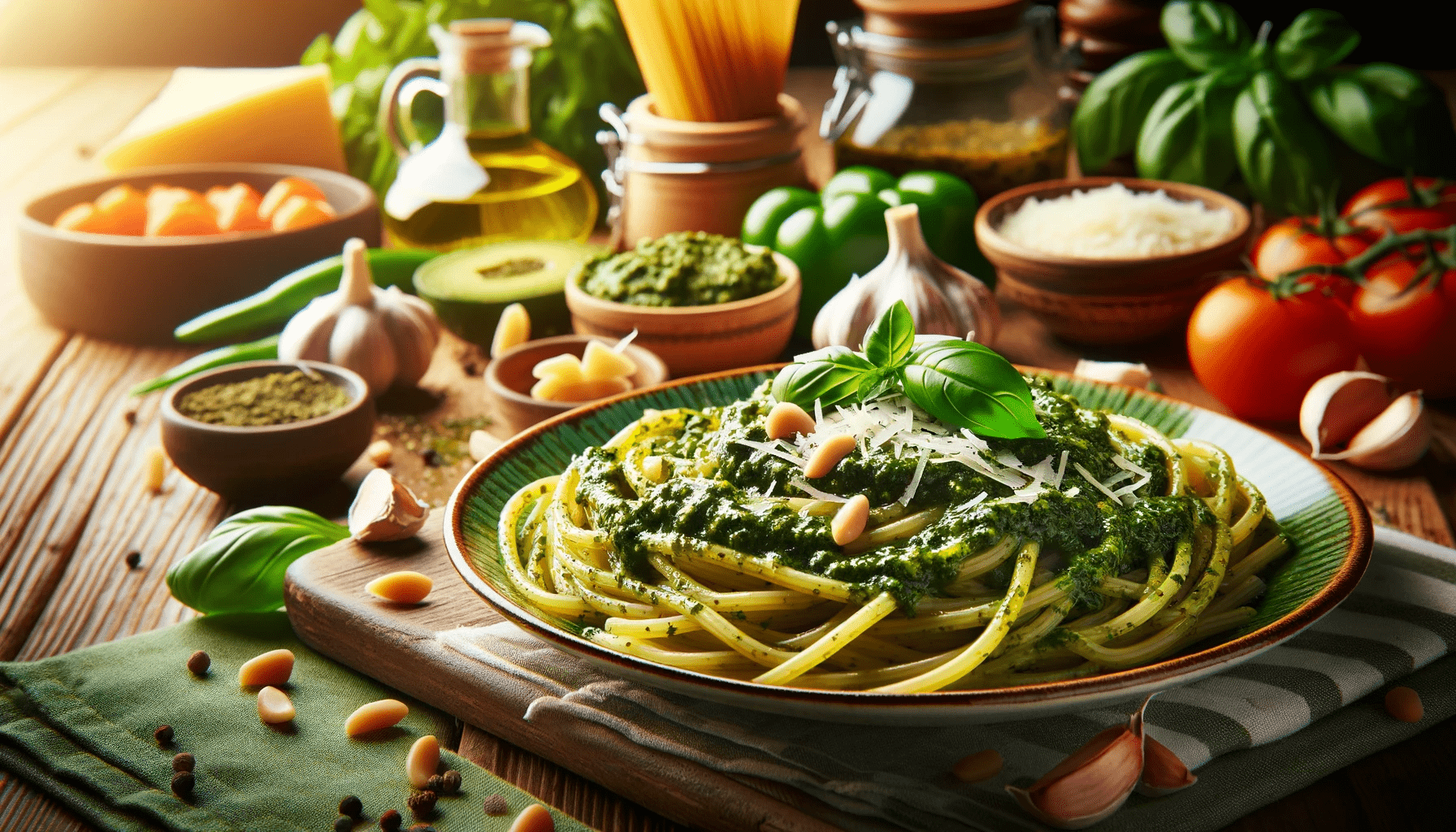Pesto pasta is a quintessential dish that marries simplicity with a burst of flavors, hailing from the heart of Italian cuisine. Beyond its delightful taste, pesto pasta offers a plethora of nutritional benefits, attributed to its fresh and wholesome ingredients. This article delves into the nutritional advantages of pesto pasta, spotlighting the essential components of traditional pesto and their positive impacts on health.
Origins and Composition
Originating from Liguria, Italy, pesto is a cold sauce that beautifully blends fresh basil, garlic, pine nuts, Parmesan (or Pecorino) cheese, all bound together with extra-virgin olive oil. When tossed with pasta, it creates a balanced and flavorful dish. Each of these ingredients contributes its own set of nutritional benefits.
Nutritional Benefits
Basil
Basil, the primary ingredient in pesto, is a rich source of vitamins A, K, and C, along with minerals such as magnesium, iron, potassium, and calcium. It also contains flavonoids that protect cells against free radical damage and essential oils with anti-inflammatory and antibacterial properties.
Garlic
Garlic, which adds a pungent depth to pesto, is renowned for its medicinal properties, including its ability to boost the immune system, lower blood pressure, and improve cardiovascular health through its sulfur compounds.
Pine Nuts
Pine nuts, adding a crunchy texture, are a good source of vitamins E and K, magnesium, and phosphorus. They contain monounsaturated fats, which help maintain healthy cholesterol levels.
Extra-Virgin Olive Oil
Olive oil is famed for its heart-healthy effects. High in monounsaturated fats, it helps reduce the risk of heart diseases and controls LDL cholesterol levels while raising HDL cholesterol, the "good" cholesterol.
Parmesan Cheese
While cheese should be consumed in moderation due to its fat and sodium content, it provides calcium and proteins, crucial for bone and muscle health.
Health Impacts
- Cardiovascular Health: The components of pesto pasta work synergistically to support cardiovascular health by reducing inflammation and keeping the blood vessels healthy.
- Weight Management: Due to its richness in healthy fats and proteins, pesto can help regulate appetite and promote a feeling of fullness, beneficial for weight management.
- Immune System Support: The vitamins and minerals present in pesto bolster the immune system, while garlic's antibacterial properties can help fend off infections.
Dietary Considerations
While pesto pasta is nutritious, it is also calorie-dense, primarily due to the olive oil and pine nuts. For those monitoring their calorie intake, portion control is key. Additionally, choosing whole-grain pasta can add fiber to the meal, enhancing its satiety and digestive benefits.
Sustainability and Variations
The traditional pesto recipe can be modified for various dietary needs and preferences. Vegan versions replace cheese with nutritional yeast, offering a similar flavor profile with added B vitamins. Substituting nuts or using seed alternatives can cater to those with allergies, ensuring the dish remains inclusive and nutritious.
Conclusion
Pesto pasta is not just a delectable and easy-to-make dish; it also boasts a host of health benefits, thanks to its unique combination of fresh, nutritious ingredients. Whether aiming to support cardiovascular health, manage weight, or boost the immune system, this classic Italian dish is an excellent choice for those looking to enjoy taste and health benefits simultaneously. However, moderation and balance are key, ensuring that this dish is consumed as part of a varied and balanced diet.
Discover Pesto on the Amazon store : link

Leave a comment